Every pet parent has found themselves in the kitchen, with those big, puppy dog eyes or that purring kitty looking up at them, and thinking, "Can I share my snack with them?" Well, before you do, let's chat about some seriously harmful foods for pets. Yep, some of our favorite human treats are actually bad for pets. So, what's off the table? Let's dig in!
1. Fatty Foods and Why They're a No-Go

When we think of comfort food, fatty foods often top the list, but did you know they're also considered harmful foods for pets? That's right, those greasy, high-fat treats we occasionally indulge in can pose significant health risks to our furry companions. Foods like bacon, sausages, and even that leftover pizza can lead to serious conditions such as pancreatitis in pets.
Other issues linked to fatty foods in pets include obesity and heart disease, making them harmful foods for pets not just in the short term but also in the long run. Obesity in pets can lead to a host of other health problems, including joint pain, diabetes, and decreased life expectancy.
2. Toxic Foods: The Usual Suspects

Chocolate, raisins, and grapes. These seemingly harmless snacks for humans can be downright toxic foods for pets. Chocolate, for example, contains theobromine and caffeine, which can be toxic to dogs and cats. Raisins and grapes, though healthy for humans, can cause kidney failure in pets. It’s a startling reminder that what's a treat for us can be a threat to them.
But why exactly are these foods so dangerous? The exact reason why grapes and raisins are toxic to pets is still a bit of a mystery, but the effects are well-documented and serious. As for chocolate, the level of toxicity depends on the type of chocolate and the size of your pet.
Symptoms of poisoning can include vomiting, diarrhea, rapid breathing, and seizures. If you suspect your pet has ingested any of these foods, it's crucial to seek veterinary care immediately.
3. The Sneaky Danger of Xylitol

Xylitol might sound like a cool new gadget from a sci-fi movie, but in reality, it's one of the most harmful foods for pets, lurking in plain sight in many of our everyday products. This sneaky sweetener is found in everything from sugar-free gum and peanut butter to certain baked goods and toothpaste. While it's a fantastic sugar alternative for us humans looking to cut down on calories, for our furry friends, it's a different story. Even a tiny amount of xylitol can cause a rapid release of insulin in dogs, leading to potentially life-threatening hypoglycemia.
The danger of xylitol doesn't stop at just a drop in blood sugar. Its ingestion can lead to liver failure and seizures in pets, especially dogs. This makes it crucial for pet parents to diligently check product labels and keep any xylitol-containing products out of paw's reach. Prevention is key, and in this case, it's about keeping these products securely stored away or opting for pet-safe alternatives.
4. Raw Food: Handle With Care

Raw meats can harbor some pretty nasty bacteria like Salmonella and E. coli, which can be harmful to both pets and humans in the household. Dr. Jeff, who's seen a fair share of raw diet complications, cautions, "Feeding raw food requires an understanding of proper preparation and storage. Without it, you're playing a dangerous game with your pet's health."
If you're set on the raw diet route, consider commercially available options that have undergone high-pressure pasteurization or freeze-drying. These processes help eliminate harmful pathogens, making the food safer for your pet's consumption.
Consult with a vet or a pet nutritionist. They can provide guidance on safe handling and balance in a raw diet, ensuring your pet gets the nutrition they need without the health risks. Ultimately, it's about striking the right balance between the potential benefits of raw feeding and ensuring the safety and well-being of your beloved pet.
5. Leafy Vegetables and Fruit Skins - Not Always Healthy

When it comes to feeding our furry friends, we often think that 'natural' means 'safe'. But here's a twist in the tail – not all leafy greens and fruit skins are pet-friendly. Sure, we love munching on a crisp apple or a fresh salad, but for our pets, it's a different story. The hard truth is, some leafy veggies and fruit skins can be tough on their digestive systems. For instance, the skins of apples contain trace amounts of cyanide, which is harmless to humans in small quantities but not so great for pets. And while some vegetables like carrots can be a healthy snack, others, like onions and garlic, are a big no-no due to their toxicity to dogs and cats.
Wrapping Up: Be a Smart Pet Parent
So, there you have it, folks! A rundown of some of the worst offenders in the pet food world. Remember, what's yummy for you could be harmful, even toxic, to your furry family members. Our advice? Stick to pet-approved foods and treats. And when in doubt, always ask your vet.
Let's commit to keeping our beloved pets safe, healthy, and far from these dietary dangers. After all, a healthy pet is a happy pet, and isn't that what we all want?
Visit Dr. Jeff Werber’s Instagram account (@werbs_dvm) to view and submit questions and answers on weekly AMAs – or call and leave a voicemail at 424-835-0576. Your call will be returned posthaste. For emergencies, download Dr. Jeff Werber’s app Airvet, a video-chat option for veterinary needs at any time of day or night!
